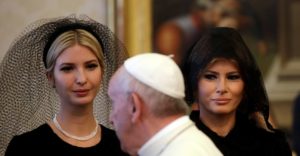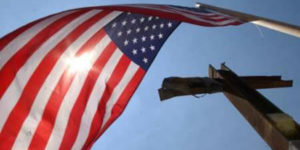When the House Judiciary Committee held a religious liberty hearing in 2014, Representative Trent Franks from Arizona accused the Obama administration of “flippant willingness to fundamentally abrogate America’s priceless religious freedom in the name of leftist social engineering,” citing Obamacare’s birth control mandate. Franks added that “every individual has the right to religious freedom and First Amendment expression so long as they do not deny the constitutional rights of another.”
But as that hearing wore on, it became clear that Republicans and their conservative witnesses did, in fact, want to impinge on the rights of others. They argued that, for religious reasons, companies should be allowed to deny their employees contraception coverage and wedding photographers should be allowed to turn away same-sex couples. Matthew Staver, founder of the conservative Christian law firm Liberty Counsel, even defended the legality of counseling “to reduce or eliminate same-sex sexual attractions, behavior, or identity”—otherwise known as conversion therapy.
Barry Lynn—a Democratic witness and the executive director of Americans United for the Separation of Church and State—argued in his testimony, “Ironically, the single greatest threat to religious freedom comes from a radical redefinition of the idea itself…I think the Framers of the Constitution would be appalled at the radical revisionism of the First Amendment being advocated by some. More importantly, I think the America of the future will look askance at efforts to elevate majority faiths or subject not so traditional believers to the status of an orphan class to be denied genuinely equal treatment in this diverse country.”
If Lynn was concerned about Republicans’ redefinition of religious liberty three years ago, he’s more worried today, now that the GOP controls Congress and the presidency.
Trump’s nominee for the Supreme Court, appeals court judge Neil Gorsuch, is an anti-choice arch-conservative who sidedwith Hobby Lobby in the (ultimately successful) lawsuit against the aforementioned birth control mandate. Trump has tappedLiberty University President Jerry Falwell Jr. to head an education task force. He wants to enact a $20 billion school voucher program that would use taxpayer dollars to fund religious education. He’s pledged to “totally destroy” the Johnson Amendment, a 1954 law banning churches from political campaigning. And his ban on immigration from seven majority-Muslim countries was halted by a federal judge for discriminating based on religion.
“When you take vouchers, politicking from the pulpit, the trumping of laws by claims of religion, and the immigration order, that is just a smorgasbord of terrible ideas,” Lynn said in an interview this week.
There’s more. As Michelle Goldberg wrote in The New York Times last month, Trump is “assembling a near-theocratic administration, his cabinet full of avowed enemies of church-state separation.” Vice President Mike Pence believes school should be allowed to teach creationism, that condoms provide “very poor protection,” and has argued that federal AIDS funding should go to organizations that “provide assistance to those seeking to change their sexual behavior.” Attorney General Jeff Sessions has said church-state separation is “unhistorical and unconstitutional.” Education Secretary Betsy DeVos supports taxpayer-funded vouchers for public school students to attend religious schools. And so on.
Meanwhile, congressional Republicans are readying to reintroduce Trump-endorsed legislation that “would limit the federal government’s ability to punish individuals and organizations who oppose same-sex marriage on religious grounds,” according to PBS NewsHour. Walter Olson, a senior fellow at the libertarian Cato Institute, told PBS that the bill, as first introduced in 2015, “is very radical, and would startle and scare middle-of-the-road Republicans”:
Olson argued that the law, as it was originally written, would protect people like Kim Davis, the Kentucky county clerk who grabbed headlines in 2015 when she denied a marriage license to a same-sex couple. The bill also extended protection to pharmacists who refuse to fill birth control prescriptions for unmarried women if they cite that “sexual relations are properly reserved to such a marriage.”
“Everything we hold as being real constitutional freedoms and protections is under assault right now,” Larry Decker, executive director of the Secular Coalition For America, said in an interview.
In addition to legitimizing discrimination under the guise of religious freedom, Trump is further enhancing the privilege of Christianity in America. He’s pledged to prioritize Christian refugees, drawing condemnation from Christian leaders who rightly see the idea as discriminatory. More fundamentally, he’s advancing the politically expedient lie that Christianity itself is somehow under attack in the United States. “Christianity is under tremendous siege,” he said on the campaign trail last year.
“They don’t have a damn clue what religious freedom means. They have bastardized the expression and the definition of it.”
Though Christians face legitimate religious persecution and slaughter for their beliefs around the world, America retains a “dizzying level of religious freedom for Christians,” Lynn told me. Much of Trump’s most passionate campaign rhetoric on this issue last year revolved around his pledge to bring back “Merry Christmas,” the seasonal greeting supposedly endangered by the rise of “Happy Holidays.” This is classic conservative Christian grievance politics, revealing that the religious right’s anxiety is not that their faith is genuinely threatened, but that it no long occupies a privileged place in an increasingly multicultural society.
“They don’t have a damn clue what religious freedom means,” Decker of the Secular Coalition said. “They have bastardized the expression and the definition of it to suggest the only thing that creates real religious freedom is privileging Christianity in this country.”
Deep down, Trump probably regards the religious right with only slightly more esteem than your average Manhattanite. But conservative Christians, evangelicals especially, are a key part of his political coalition, and he’s clearly willing to do almost anything to keep them in his column. He’ll worship them so long as they worship him, happy to politicize religion if it serves his needs.
Decker said it wasn’t for him to question Trump’s faith, but joked that Trump clearly believes in one deity above all. “I do believe that Donald Trump probably is a believer,” he said. “I think he’s a believer in Donald Trump.”



